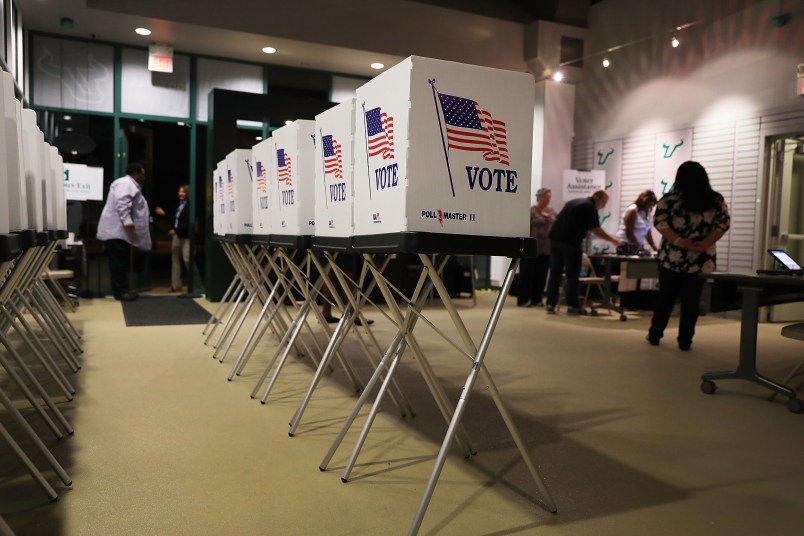A few states in the West already have mail in voting that appears perfectly suited to a possible pandemic era election. States around the country, while managing the crisis response to the outbreak itself need to be into discussing, planning and implementing new plans for the November elections. Under normal circumstances this wouldn’t be nearly enough time. Obviously these are far from normal circumstances. And seven-plus months is just enough time to make major changes. The country is already in the midst of a profound public health crisis and heading into a deep and likely protracted economic crisis. We must now guard against a crisis of political legitimacy which would not only be a disaster in itself but dramatically compound the difficulty of dealing with the public health and economic crises.
To put it bluntly, our system of government works because we have an agreed upon set of rules, we hold elections and then grant the legitimacy of political power to those who win elections. I don’t have to tell you that those rules and legitimacy have already come under great strain in recent years. By and large though they have held up.
The idea of postponing the November election seems unthinkable and to me is unthinkable. But states around the country are already postponing or considering postponing primary elections. Given this period of extenuating crisis and the rapid onset of events those decisions may be the right ones but they open the door to other decisions.
More concretely we have to consider scenarios in which the public health crisis dramatically effects the conduct of the election. France held an election yesterday in which turnout collapsed and collapsed much more in the cities than in rural areas. One can easily imagine different scenarios in which patterns hurt one or the other party. But the overriding point is that any election which appeared to be decisively turned on the contours of the COVID-19 epidemic would lack legitimacy – and not in a political science debating point sense but in the sense of destabilizing the society itself.
You can imagine a lot of more malign scenarios. But these are all ones in which there are no obvious bad actors, no one trying to exploit the situation for their own power.
What states should do I don’t know or what they would be able to do in six months I’m not entirely sure. Clearly having every state ready for voting by mail would be ideal. But that’s not necessarily the only way to handle it. Another obvious path would simply be to dramatically expand early voting, thus reducing density. What is critical here is that these are state decisions. By and large that is good in this case. I should add here that even under the worst scenarios it seems unlikely that this outbreak will continue through November. Outbreaks peak and then ebb, even in the worst, unmitigated scenarios. But the are real concerns, backed up by epidemiology, that this wave could crest in the late spring or summer and then return in the fall. It is also probable that the epidemic will roll through the country at different rates.
The US has held national elections during World Wars and a Civil War. They are sacrosanct in out national political culture.






